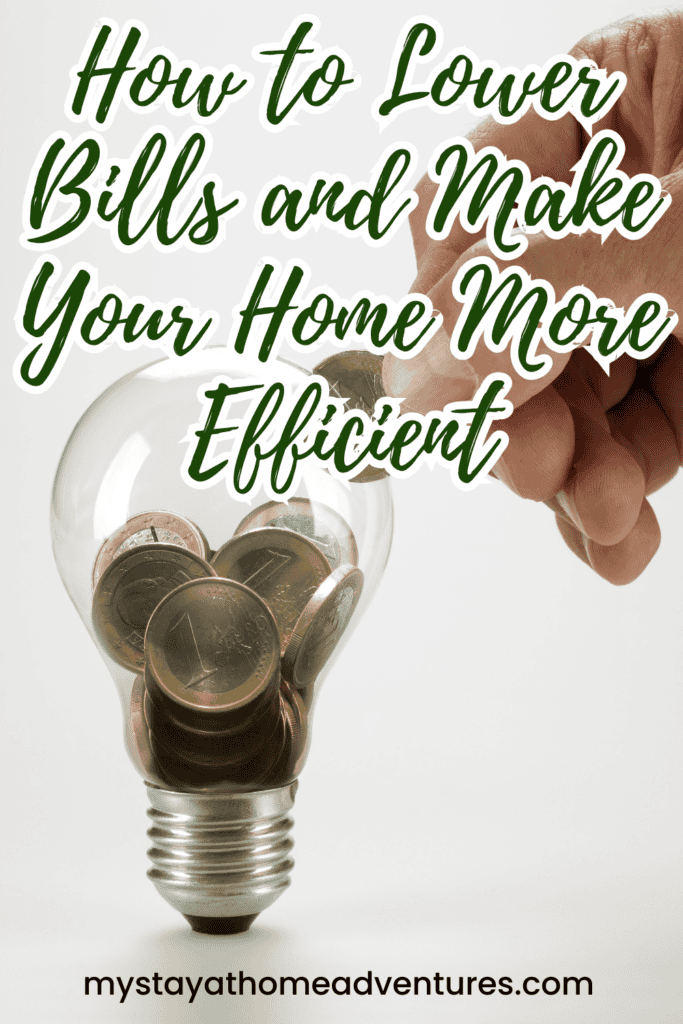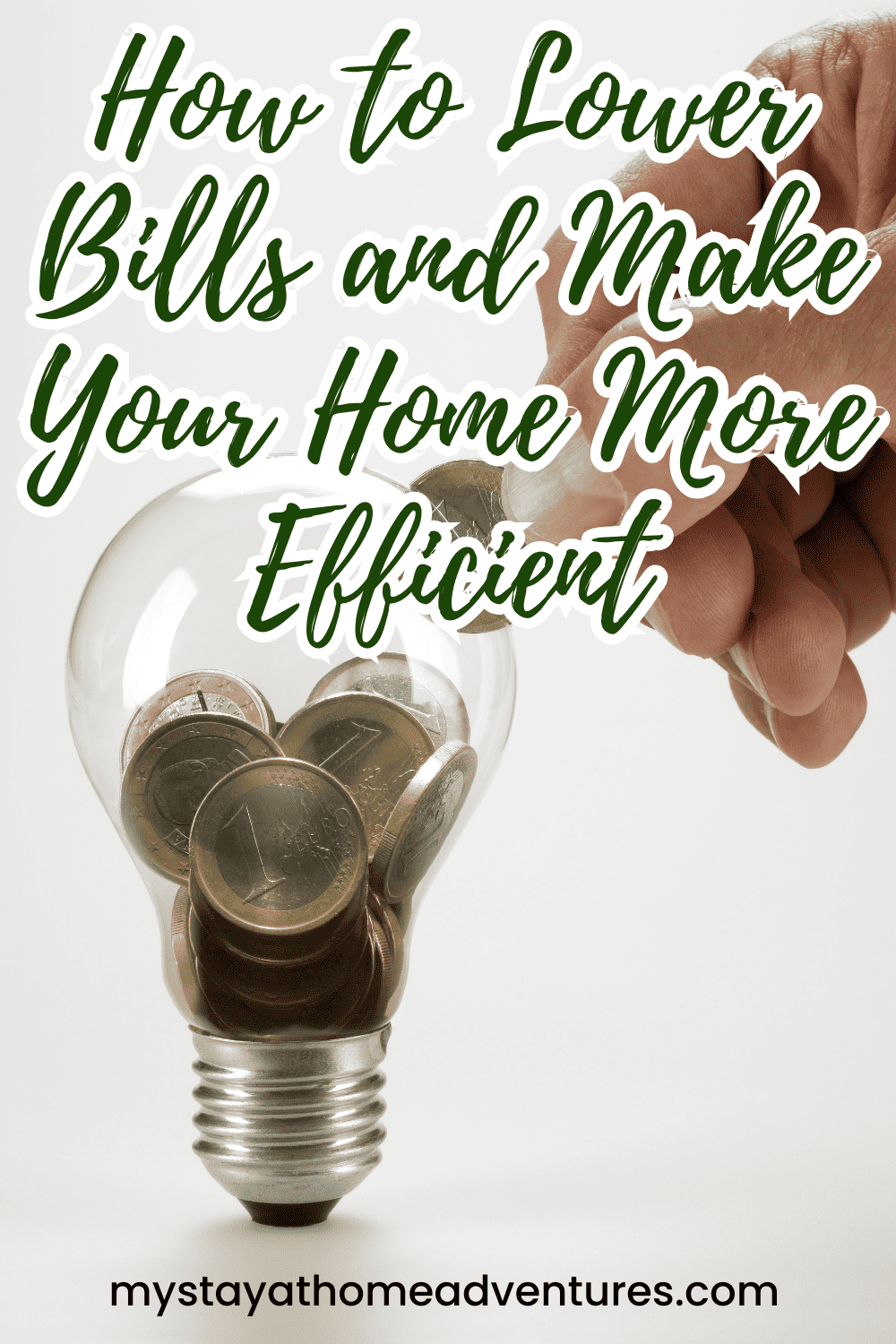Energy-Saving Hacks: How to Lower Bills and Make Your Home More Efficient
This post may contain affiliate links which might earn us money. Please read my Disclosure and Privacy policies hereDo rising energy bills weigh on your mind? Many homeowners feel the pinch as electricity and gas prices continue to climb. Finding ways to save energy at home is not just about saving money but also reducing your carbon footprint. One great approach is to compare business energy rates and evaluate the options available for your home. This guide will explore practical saving tips to help you create a more energy-efficient home while trimming your bills. Let's get stuck in!

How to Make Your Home Energy-Efficient
A home's efficiency affects how much you spend on electricity and gas. Here's how to make your home more efficient to lower energy usage.
The Role of Efficient Appliances
Upgrading to efficient appliances is one of the smartest saving tips. Look for items with a high energy rating, such as refrigerators, washing machines, and HVAC systems. These consume less power, lowering your electricity usage. For instance, appliances with an “A+++” rating can cut electricity costs by up to 30% compared to older models.
Smart meters further enhance efficiency. They monitor your electricity usage, allowing you to see how much energy each appliance consumes. This data encourages smarter decisions, like running energy-hungry machines during off-peak hours. Switching to efficient appliances might seem expensive initially, but their impact on reducing electricity bills makes them a cost-effective choice in the long run.
Insulation and Weatherproofing
Improving your home's insulation keeps it cooler in summer and warmer in winter, reducing energy costs. Insulating walls, windows, and the attic can save energy and lower your average gas bill. Sealing gaps around doors and windows also prevents energy loss. Studies show proper insulation can cut your energy bill by 20%. Add weatherstripping for additional savings, especially in older homes.
Why Comparing Business Electricity Prices Can Inspire Home Savings
While primarily for commercial purposes, comparing business electricity rates can help homeowners find better deals. Many energy suppliers offer tailored plans based on usage patterns. Comparing plans with different providers lets you discover if you're overpaying for energy. This strategy has helped some businesses save up to 15% annually and get out of debt!
Tips to Reduce Your Electricity Bill at Home
- Switch to LED Bulbs: LEDs consume 75% less energy than traditional bulbs and last up to 25 times longer.
- Turn Off Unused Electronics: Plugged-in devices in standby mode still consume power. Using power strips makes it easier to cut electricity use entirely.
- Install a Smart Thermostat: A smart thermostat learns your heating and cooling habits, optimizes energy usage and lowers the average energy bill.

Exploring Energy Costs and Usage
Energy costs depend heavily on usage and regional energy prices. A household's electricity bill largely depends on its efficiency and supplier. For example, switching to commercial energy providers or optimizing your current plan could save you hundreds annually.
The average electricity bill in the U.S. is around $122 per month, with gas adding $60. Reducing energy use through efficient practices can bring this number down significantly.
Embracing a Net Zero Future
As energy prices fluctuate, aiming for a net zero future by embracing clean energy options can yield benefits. Installing solar panels, for instance, minimizes reliance on external suppliers, dramatically cutting energy bills. Some regions offer incentives for renewable energy installations, reducing upfront costs.
The Impact of Renewable Energy
Switching to renewable sources reduces reliance on fossil fuels and lowers carbon emissions. Solar energy systems save homeowners $600–$1,500 annually, depending on energy use. Paired with battery systems, they ensure energy availability during outages, enhancing efficiency.
Energy Suppliers and Commercial Energy Providers
Energy suppliers offer various packages for businesses and residential users. Some homeowners save money by choosing plans from commercial energy providers. These suppliers provide bulk rates, and consumers benefit from lower costs—research energy suppliers in your area for the best deals.
Improve Your Home's Energy Efficiency with Smart Devices
Smart home devices like programmable thermostats, smart meters, and connected lighting systems transform how we save energy. These technologies adjust settings based on habits, saving energy and money without requiring constant manual effort.
The Financial Benefits of a Smart Meter
Smart meters track real-time energy usage, helping users make informed adjustments. This reduces monthly electricity bills and provides detailed insights into high-consumption areas. Due to savings, such devices often pay for themselves within a year, becoming a financial benefit.

Key Energy-Saving Tips
- Upgrade to energy-efficient appliances to reduce electricity use.
- Install solar panels for renewable energy and lower electricity bills.
- Use LED lighting for improved energy efficiency and longer lifespan.
- Seal leaks in windows and doors to avoid energy loss.
- Rely on smart meters for monitoring and reducing energy consumption.
Optimizing Electricity and Gas Usage
Understanding how much gas and electricity your household uses can help you develop better habits. For instance, washing clothes with cold water and drying them outdoors cuts energy usage. On average, these practices save $50–$100 annually. Adjusting water heater settings to 120°F can also lower your energy bill significantly.
Final Words
Lowering energy bills and enhancing your home's energy efficiency doesn't have to be complicated. From upgrading appliances to using renewable energy, small changes can create significant savings. Compare business electricity rates and choose smarter practices for a greener, more cost-effective home.
FAQs
1. What are the best ways to monitor energy usage at home?
Installing smart meters or energy monitors provides real-time data on electricity usage. These devices identify high-consumption areas, enabling better-saving practices.
2. Are energy-efficient appliances worth the investment?
Yes, appliances with high energy ratings reduce electricity bills significantly. Over time, the savings outweigh the initial cost, making them a worthwhile purchase.
3. How do I find the cheapest energy supplier?
Research and compare commercial energy providers and residential plans online. Many platforms offer tools to compare energy suppliers for the best rates.








